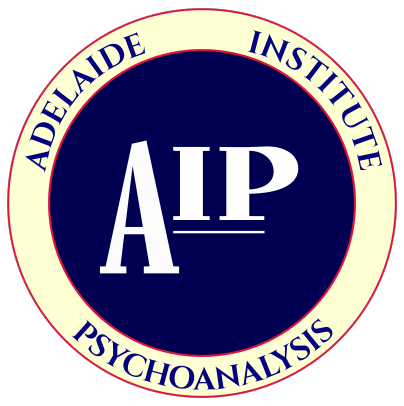About – History of AIP
The Adelaide Institute of Psychoanalysis (AIP) is a non-profit organisation in association with the APAS and the IPA that provides a forum for professional psycho-analysts to unite in supporting professional identity, public accountability and training.
AIP offers comprehensive training programs as well as clinical and theoretical lectures, seminars, supervision and access to psychoanalytic therapy. AIP is the only society in South Australia that, upon completion of psychoanalytic training, leads candidates to qualify for full membership with both the Australian Psychoanalytic Society and the International Psychoanalytical Association. What is psychoanalysis?
Origins
The history of the Adelaide Institute of Psychoanalysis is inextricably tied to that of the Australian Society of Psychoanalysis. Although psychoanalytic practice in Australia did not commence until the 1930’s, Ernest Jones reported a number of events that accord Australia a significant place in the early history of Psychoanalysis. For example, in 1909 Freud reported having received a letter from Sydney telling him there was a group eagerly studying his work. Further, Ernest Jones himself presented a paper to the 1914 Australasian Medical Congress entitled “Some Practical Aspects of Psychoanalytic Treatment.” Freud also submitted a paper “On Psychoanalysis” which was read before the Congress.
It is important when considering the history of Psychoanalysis in Australia to recognise how revolutionary psychoanalytic ideas were in the 1930’s and how intensely polarised were attitudes to it. It is also important to recognise that not only training and qualification to practise analysis were very different from today but that the early practitioners were in fact pioneers and had to cope with the inevitable problems that face all pioneers; this might apply to the Adelaide Institute, given is geographical isolation.
Introduction of psychoanalysis in Australia
Dr Roy Winn was the first to practice psychoanalysis in Australia. He entered general practice in Sydney in 1922, and went on to found the Sydney Institute of Psychoanalysis . Dr Winn commenced psychoanalytic practice in 1931 and continued for some thirty years until the early 1960’s when he retired.
In the late 1930’s there was also a growing interest in psychoanalysis in Melbourne, both within psychiatry and the wider intellectual community. These psychiatrists, together with the Bishop of Goulburn and Dr Winn actively worked to support the efforts being made by Ernest Jones and John Rickman to enable psychoanalysts to migrate to Australia. As early as 1938, Ernest Jones had raised the possibility of six analysts from Europe migrating to Australia and New Zealand. However, considerable difficulty was encountered in obtaining Government support and approval for this.
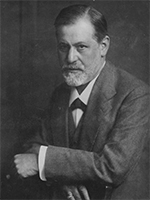
Sigmund Freud
(1856-1939)
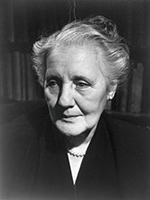
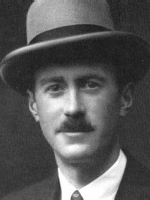
European Influences
As events transpired, it was only possible for one of the six to come to Australia – Dr Clara Lazar-Geroe from Budapest. She settled in Melbourne where there were a stronger and more active group of supporters. This also meant though, that Dr Geroe had to work in relative isolation from other analysts. She had been analysed and supervised by Michael Balint for three years and was later involved in seminars conducted by Ferenczi and others active in the psychoanalytic scene at the time.
Dr Roy Winn was the first to practice psychoanalysis in Australia. He entered general practice in Sydney in 1922, and went on to found the Sydney Institute of Psychoanalysis. Dr Winn commenced psychoanalytic practice in 1931 and continued for some thirty years until the early 1960’s when he retired.
It will be appreciated how formidable a task faced Dr Geroe in Australia when it is recognised that she single handedly established a psychoanalytic centre in a new world. Very largely on the advice of Michael Balint who had analysed Dr Geroe in Hungary, Ernest Jones appointed Dr Geroe a Training Analyst of the British Society and authorised her to function in Melbourne as a “Branch of the British Society.” Dr Geroe commenced work in the Melbourne Institute of Psychoanalysis in 1941 – she also had an interest in Child Guidance and the analytic training of non-medical people.
From the outset she saw her major task as that of presenting psychoanalysis to a large and diverse audience. For many years Dr Geroe conducted seminars for psychiatrists, educationists, parents and teachers – thereby influencing many institutions to adopt a new way of thinking about human behaviour.
In the twenty years from 1941, Dr Geroe analysed many people. Those she referred to as early trainees included Dr Harry Southwood. Dr Southwood was one of three trainees to qualify for Associate Membership in 1953.
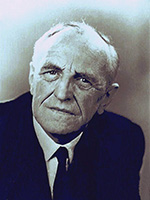
Donald W Winnicott (1896-1970)
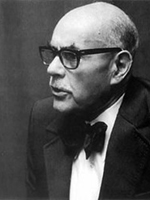
Psychoanalysis in Adelaide
Dr Southwood, because he was resident in Adelaide, overcame many obstacles and pursued his training at considerable personal cost. He moved to Melbourne for a period of between 12-18 months for his analysis before returning to Adelaide to start with his first training case. He then returned to Melbourne for analytic sessions and supervision over a period of several years. On occasions was it possible for him to return for uninterrupted periods with Dr Geroe.
Subsequent to his election as a Full Member of the British Psychoanalytical Society, Dr Southwood was accredited by Dr Geroe as a Training Analyst. For many years Dr Southwood published and distributed the “Adelaide Review of Psychoanalysis”, a bulletin devoted to reviewing topical articles on analysis. He trained three candidates, Drs Jack Earl, Robert Gillen and Clive Kneebone – with only intermittent supervisory assistance from Melbourne. Dr Kneebone, with Dr Earl’s help, went on to run an analytic interest group for psychotherapists. In 1978 Dr Sam Stein emigrated to Adelaide from South Africa, having trained in the British Society. This group in turn have gone on to be involved in training other candidates, establishing Adelaide as a training centre for the APAS.
In each of the three centres then (Adelaide, Melbourne & Sydney) there is now an Institute which undertakes psychoanalytic activities such as training but which also include lectures, workshops, seminars, and the provision services such as supervision and clinical discussion for members of associated professions.
AIP welcomes you to browse our many public events, courses and conferences that are held throughout the year. Many of these events can be attended online and cover a range of levels.
All photos used with kind permission of the British Psychoanalytical Society
(Courtesy of Prof. R. Martin, Sydney)
